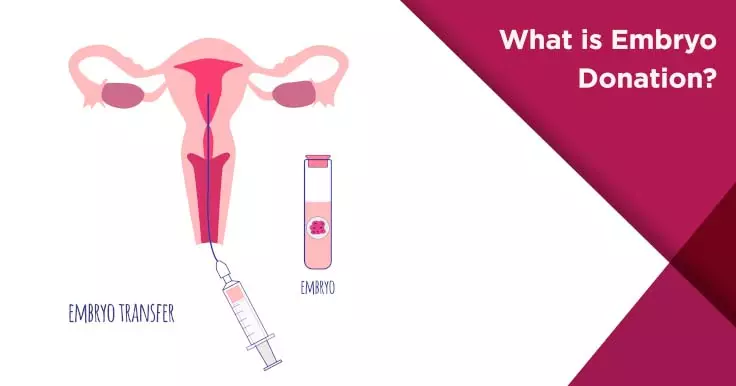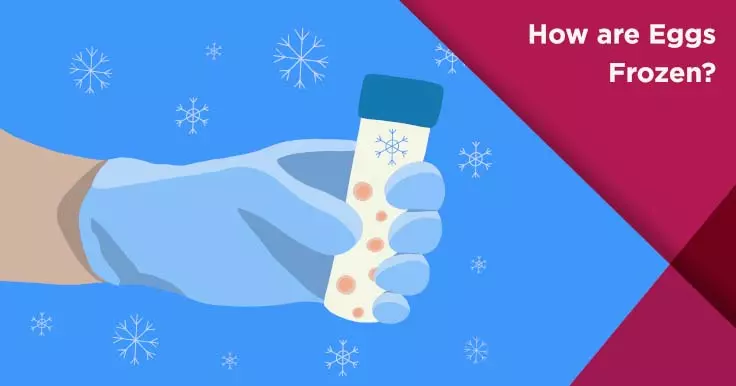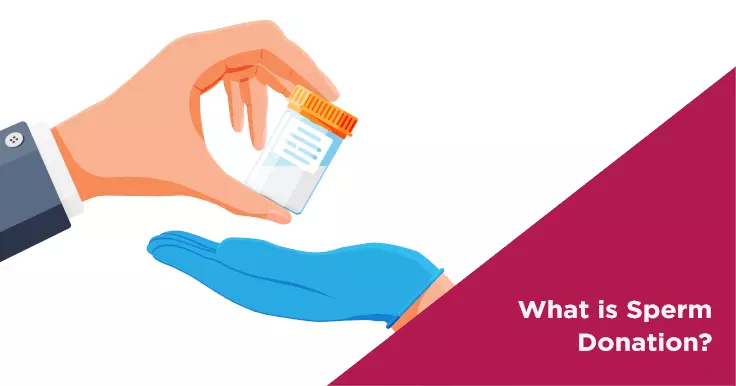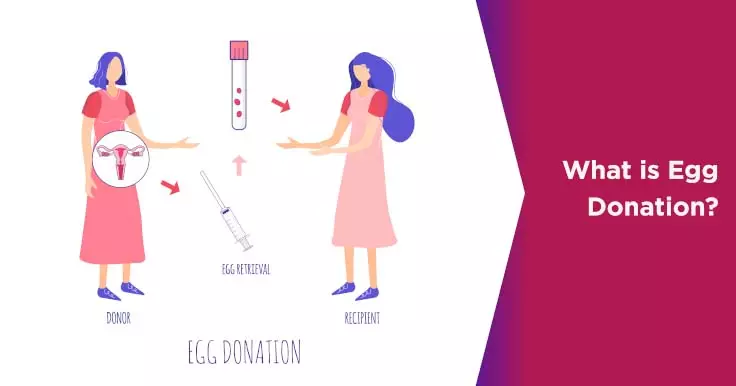All About Embryo / Egg / Sperm Donation Services
Embryo Adoption or Donor Embryo Transfer
Some couples have a severe egg and sperm factor. If they have been unsuccessful with self-gametes or wish to opt for a donor egg and donor sperm for medical reasons, this can be offered to the couple and is rightly called embryo adoption or more commonly embryo donation (the latter term is actually a misnomer).
In this procedure, a healthy anonymous donor’s eggs are fertilised with anonymous donor sperm from a sperm bank and one or two of resultant embryos are placed in the intending mother’s womb at an opportune time. This leads to a high pregnancy rate. However, it is essential for the couple to understand, grasp and accept the fact that resultant offspring will not be their genetic child but will be their biological child. It is a pre-requisite that the couples undergo thorough counselling and are mentally ready for this form of treatment.
Book your Appointment

Egg donation
Ovum (egg) donation is a process where the eggs of a healthy young woman (the egg donor) are fertilised with the sperms from the patient's husband and the resulting embryos are then transferred into the patient's uterus. This process not only gives the couple the gift of parenthood but also gives the woman the opportunity to experience the joys of being pregnant.
The Procedure of Egg Donation
The process of egg donation starts with the selection of a donor. The candidate will be an anonymous donor who has been approved after a series of medical and genetic screenings. The donor's ovaries are stimulated by a stimulation regimen to produce multiple eggs. The eggs are then retrieved, fertilised and the embryos cultured. The embryos with the highest quality are transferred into the recipient's uterus.
Who is it for?
- Older women who have reduced quality and quantity of eggs
- Women with reproductive problems such as ovarian failure
- Poor response to previous IVF treatment
- Women with genetic diseases that they do not want to pass on to the child
Sperm donation
Donated sperm is offered to couples where there is no possibility of retrieving sperms naturally or by a surgical procedure for a man. The donor sperm is used to either inseminate the woman (IUI) or to fertilise her eggs in an IVF process. As is obvious, the couple is counselled together about the implications and process involved in such a treatment.
All donor sperm samples are to be availed from established and registered sperm banks. These sperm samples are from fertile donors that have been screened for viral infections and common genetic disorders. No fresh donors or known donors should ever be used.
The samples are identified by a number code provided by the sperm bank.
Frequently Asked Questions
IVF was initially developed for women who had obstructed or missing fallopian tubes, and it remains the preferred method in these cases. It is also utilised when other conditions exist, such as male factor infertility, endometriosis, and unexplained infertility, where no underlying cause of infertility can be identified. Our professionals will analyse your medical history and direct you to the most appropriate therapy and diagnostic tests for you.
Yes, definitely, vitrification of eggs and embryos has proven to be beneficial because it increases the survival rates of eggs and embryos and improves overall pregnancy rates through IVF.
Yes, several successful pregnancies have been achieved using vitrified embryos or eggs. The rate of success is comparable to those obtained with fresh eggs or embryos.
Women are born with roughly two million eggs within their ovaries. Every month, approximately 11,000 eggs die prior to a girl's adolescence. Thus, during her adolescence, a woman has only roughly 300,000 to 400,000 eggs left. From this point forward, around 1000 eggs are used each month. This is unrelated to any method of pregnancy, hormone production, birth control, lifestyle, health, or nutritional supplements. Menopause occurs when a woman no longer has viable eggs.
 Infertility Counselling
Infertility Counselling Female Infertility Treatment
Female Infertility Treatment Andrology Treatment
Andrology Treatment Fertility Enhancing Surgeries - Female
Fertility Enhancing Surgeries - Female Fertility Enhancing Surgeries - Male
Fertility Enhancing Surgeries - Male Endoscopy Treatment
Endoscopy Treatment IUI Treatment
IUI Treatment IVF Treatment
IVF Treatment ICSI Treatment
ICSI Treatment Advanced IVF Solutions
Advanced IVF Solutions Embryology
Embryology Vitrification Egg, Embryo, Sperm Freezing
Vitrification Egg, Embryo, Sperm Freezing Preimplantation Genetic Testing (PGT)
Preimplantation Genetic Testing (PGT) Donation Program Embryo / Egg / Sperm
Donation Program Embryo / Egg / Sperm Self-cycleTM IVF
Self-cycleTM IVF

 Self-cycleTM IVF
Self-cycleTM IVF








